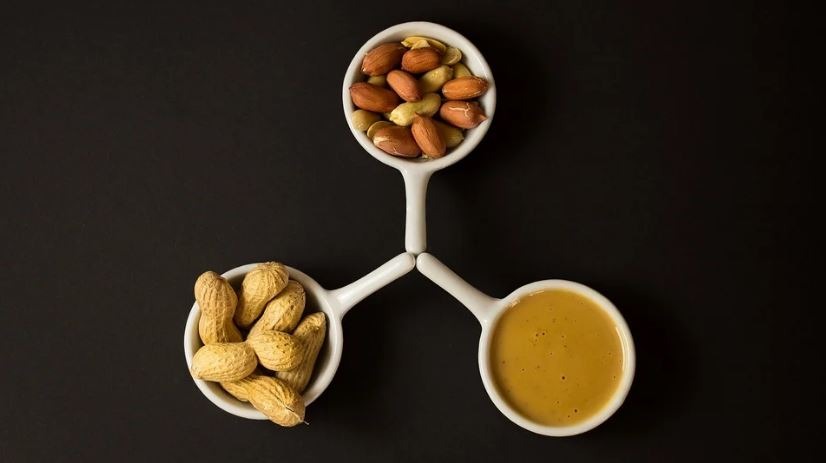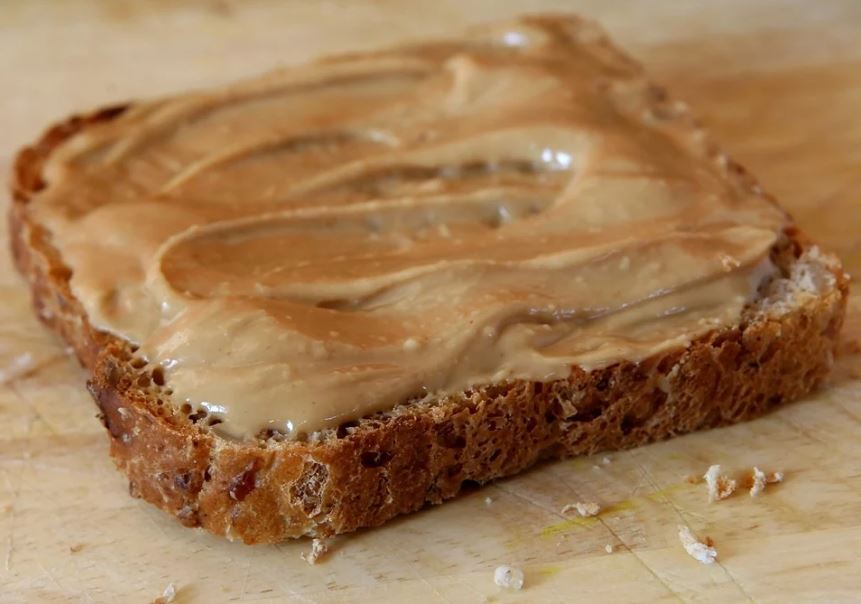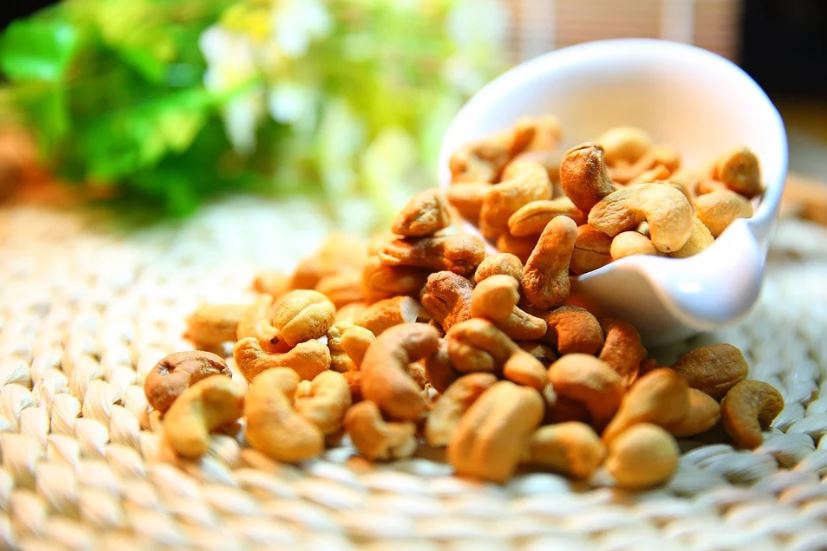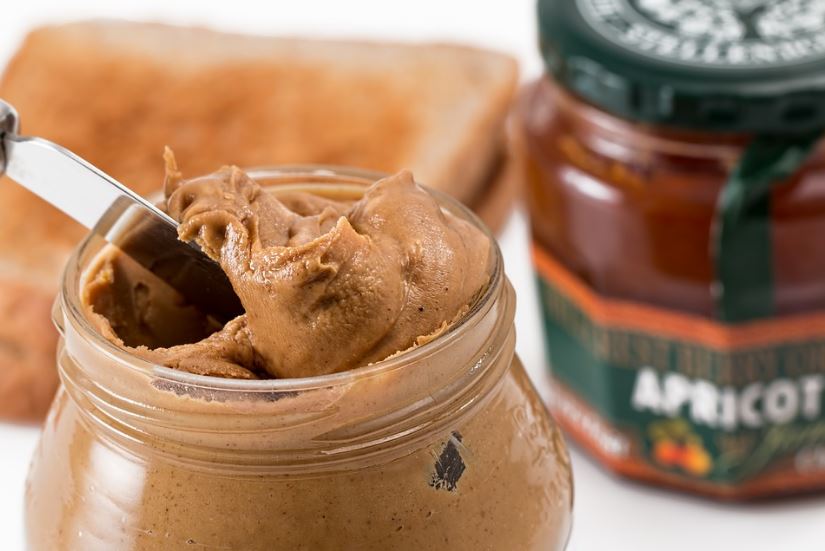Peanut butter is a common ingredient used in various snacks and cuisines all around the globe. Although peanut butter has been around for generations, more nut butter variations are gaining popularity due to its health advantages. These kinds of nut butter range include cashew butter, almond, walnut, and sesame butter. These butter are most commonly used as toppings on sandwiches.
Nut butter contains healthy monounsaturated fats. These fats increase beneficial HDL cholesterol and keep LDL cholesterol (bad cholesterol) controlled. Moreover, nut butter contains vitamin E, which protects and aids in developing your skin and hair and keeping your immune system healthy.
Ingredients
One tablespoon of most types of nut butter has around 80 to 100 calories and 7 to 10 grams, mainly unsaturated fat. In addition, nut butter is also high in protein and fiber, which helps keep you satiated for a long time.
Does Nut Butter Contain Harmful Ingredients?
Sugar and salt are among the harmful ingredients. However, organic nut butter is free of these ingredients. Allergies are the health conditions commonly seen with overconsumption. Food allergies affect 5% to 10% of the population.
Common triggers are peanuts, beans, peas, and tree nuts like pecans and almonds. Nut allergies, particularly to peanuts, are becoming more common. Allergies to peanuts may be deadly. It is one of the dietary allergens.
Types of Nut Butter
1. Peanut Butter
Peanut butter is one of the most economical kinds of nut butter, yet it provides a lot of bang for your buck. Peanut butter is high in zinc, magnesium, iron, other minerals, protein, and fat. However, when compared to other types of nut butter, peanut butter has the smallest value of nutrients and vitamins.
On the other hand, peanut butter has a high protein content (about 8 grams), which protects you from overeating during the day. It also contains a lot of antioxidants. Due to it being high in protein content, fitness lovers and bodybuilders love eating it.
For increased nutrition, combine it with apples, celery, or bananas, or whisk it into sauces for added thickness and taste.
2. Cashew Butter
Cashew butter is lower in fat than other kinds and is creamy and smooth. It compensates for the lack of omega-3 fatty acids by providing monounsaturated fatty acids, magnesium, and necessary amino acids. These nutrients help the immune system, metabolism and keep cholesterol levels regulated.
To add nutrition to Chinese noodles, broccoli, and chicken, spread cashew butter on them.
3. Brazil Nut Butter
These nuts are high in selenium, which helps your thyroid gland function properly, aids in the production of genetic material (DNA), and enhances your immune system. It also helps defend your cells from free radicals, which are harmful particles. People who get too little selenium may be more prone to some cancers.
4. Sunflower Seed Butter
Sunflower butter has a comparable nutritious profile compared to other types of nut butter, making it a perfect option for people allergic to peanuts and tree nuts. One tablespoon of sunflower seed butter has roughly a fourth of your daily vitamin E intake. Sunflower seed butter is also high in protein, omega-3 fatty acids, and magnesium. Spread it over toast, sprinkle it on pancakes or waffles, or mix it into oatmeal or a smoothie with a tablespoon.
5. Almond Butter
Almond butter, which has 200 calories, over 19 grams of fat, and nearly 5 grams of the total, might help you take up the slack between meals when you’re hungry. Almond butter has a higher proportion of magnesium, calcium, phosphorus, and manganese than peanut butter. These beneficial substances aid in the strengthening of bones and the proper balance of the body.
It is high in monounsaturated fats and vitamins and minerals like vitamin E, magnesium, and calcium, which are all beneficial for health. Use almond butter as a foundation for muffins, cakes, and cookie batters, or mix it into oatmeal and ice cream.
Two tablespoons of almond butter can provide you with 50% of your daily vitamin E intake. Finally, almond butter has the lowest saturated fat content and the highest fiber content.
The versatility of nut butter in stores is increasing, thanks to the high demand of consumers. However, according to dietitians, it is better to skip butter that has extra salt, sugar, or partially hydrogenated or hydrogenated oils.
Go Nuts with No Nuts
If your allergies prevent you from eating nuts, seed and soy nut butter are good substitutes. Sunflower seed butter is abundant in polyunsaturated fats, which are good for your heart. Soy nut butter (which has a similar flavor to peanut butter) has more protein and less fat than regular nut butter.
You might also try tahini, a sesame seed paste that has the consistency of nut butter but is nut-free and incredibly healthy.
Health Benefits of Nut Butter
Along with providing amazing taste, there are lots of health benefits of nut butter. Continue reading to know more.
1. Weight Control
Yes, nuts are high in fat, but this does not mean you should avoid them. You will feel full and invigorated because of the high protein and fiber content; hence, you might end up eating a lot less compared to other foods. In addition to keeping you full for a long time, nuts also help your body burn more calories even when you’re sleeping.
2. The Good Fat
The unsaturated oil found in nuts is healthier than the saturated fat found in meat or the trans-fat found in many processed meals. It may aid in the regulation of blood sugar and insulin, the hormone that controls it.
3. Nutrition
It’s not simply the rich protein, fiber, and excellent fats that are beneficial to your health. Nuts also provide vitamins E and B6, folic acid, niacin, magnesium, zinc, copper, potassium, and other minerals. Just keep an eye on the components in your nut butter because some have added salt, sugar, preservatives, and harmful fats, which may do more harm than good.
4. Rich in Antioxidants
Nut butter is an excellent source of minerals like selenium and manganese, vitamins C and E, flavonoids, phenols, polyphenols, and other compounds. They work together to keep your cells safe. People who consume more nuts and nut butter may have healthier hearts. Moreover, they may potentially aid in the prevention of colon cancer.
5. Maintains Healthy Cholesterol
High cholesterol can harden your arteries, leading to stroke and other heart diseases. When the cholesterol levels in your body become too high, walnuts, almonds, and other tree nuts come to help. The majority of cholesterol is produced by your body, but part of it comes from the foods you eat.
6. Health Management
Nut butter help regulate high blood sugar (glucose) and fats (lipids), which can contribute to weight gain. They may help maintain the lining of your blood vessels (endothelium) flexible and healthy, preventing diabetes-related heart issues.
7. Rich in Magnesium
Magnesium benefits your neurons, muscles, bones, blood sugar, blood pressure, and even DNA. It’s abundant in nuts like cashews, almonds, and peanuts, as well as their butter.
How to Avoid Mold
Mold may grow on nuts, which can then spread to the butter they produce. Aflatoxin is a kind of mold that can cause liver cancer. It is also more of a concern in hot, humid locations. Keep the nuts in a cool, dry area and discard any that are moldy, shriveled, or discolored. Nuts can also be stored in the freezer to avoid spoiling.
The Bottom Line
We hope this article has unveiled many facts about nut butter and cleared all your confusion regarding it. Now that you know all about different types of nut butter, you can shop for the one that suits your health.
If you want to eat something healthy for breakfast, full of protein, we recommend trying out almond or peanut butter spread (without unhealthy additives). Spread it on your favorite bread, such as bran bread, and enjoy a healthy and nutritious breakfast.




